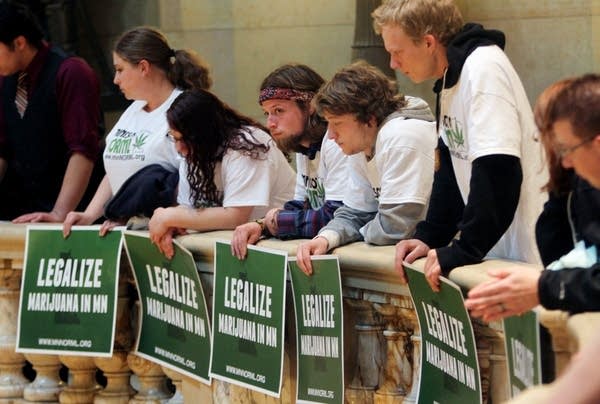Minnesota's candidates for governor divided on marijuana laws

Supporters of legalizing marijuana in Minnesota at the state Capitol in April.
Jeffrey Thompson/MPR News
Go Deeper.
Create an account or log in to save stories.
Like this?
Thanks for liking this story! We have added it to a list of your favorite stories.


